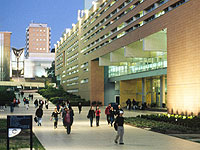| Jews in the Modern World - HIST1030 |
|
||||||||||||||||||||||||||||||||||||||||

Description The emancipation of European Jewry over the course of the 18th and 19th centuries brought previously distinct and despised Jewish communities into the heart of non-Jewish European populations. What were Jewish responses to the possibilities of emancipation and the challenges of modernity? And how did non-Jews make sense of a new world in which Jews were now their equals in the eyes of the law? What were the ramifications of emancipation over the course of the 19th century and into the 20th? Traces the emergence of Jews into the modern world and examines the way this story was played out.
Learning Outcomes By the end of this course, students will have a global understanding of the different ways in which Jews responded to the challenges and possibilities presented by modernity, as well as the ways in which non-Jews dealt with the same issues. They will also have an understanding of the indefinite nature of historical research and the need to read critically. Students who actively participate in and successfully complete the course should:
Assessment
|
|||||||||||||||||||||||||||||||||||||||||

| Contacts | Library | myUNSW | WebCT |